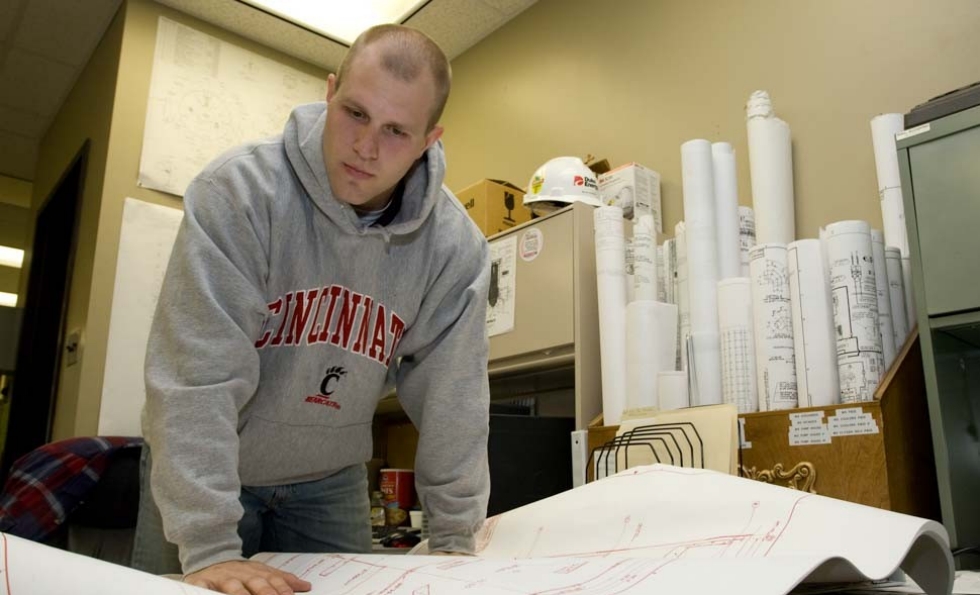The University of Cincinnati’s top-ranked cooperative education program generated a record $65 million in collective earnings for students last year, while also providing a valuable path to full-time employment in careers related to students' majors.
All told, students worked in 6,300 co-op positions in 2016, according to numbers released by UC’s Division of Experience-Based Learning and Career Education.
Student wages are rising with the improved economy. Meanwhile, more students than ever are participating in co-op programs, which have seen near-record placement rates, said Kettil Cedercreutz, associate provost and dean for the Division of Experience-Based Learning and Career Education.
About two-thirds of graduating students get job offers from their co-op employers. The program has seen steady annual growth in business participation and student earnings since the 2007 recession, Cedercreutz said.
“It’s a human resources pipeline for business. They’re here to recruit new talent. That’s why some send vice presidents here to do the hiring. They want to pick out the students who will take the companies forward,” Cedercreutz said.
With many students working longer than their 16-week appointments, average earnings exceeded $10,300 per student last year.
Cooperative education was created at UC in 1906 when Dean Herman Schneider recruited 27 students to work at Cincinnati-area manufacturing companies. Today, co-op opportunities are offered at more than 1,000 colleges and universities worldwide.
The university regularly makes U.S. News & World Report’s national rankings for best co-op education, among others.
Besides helping students pay their bills, the program has intangible benefits. Co-op is all about learning, Cedercreutz said. But co-ops also help students make more-informed career decisions.
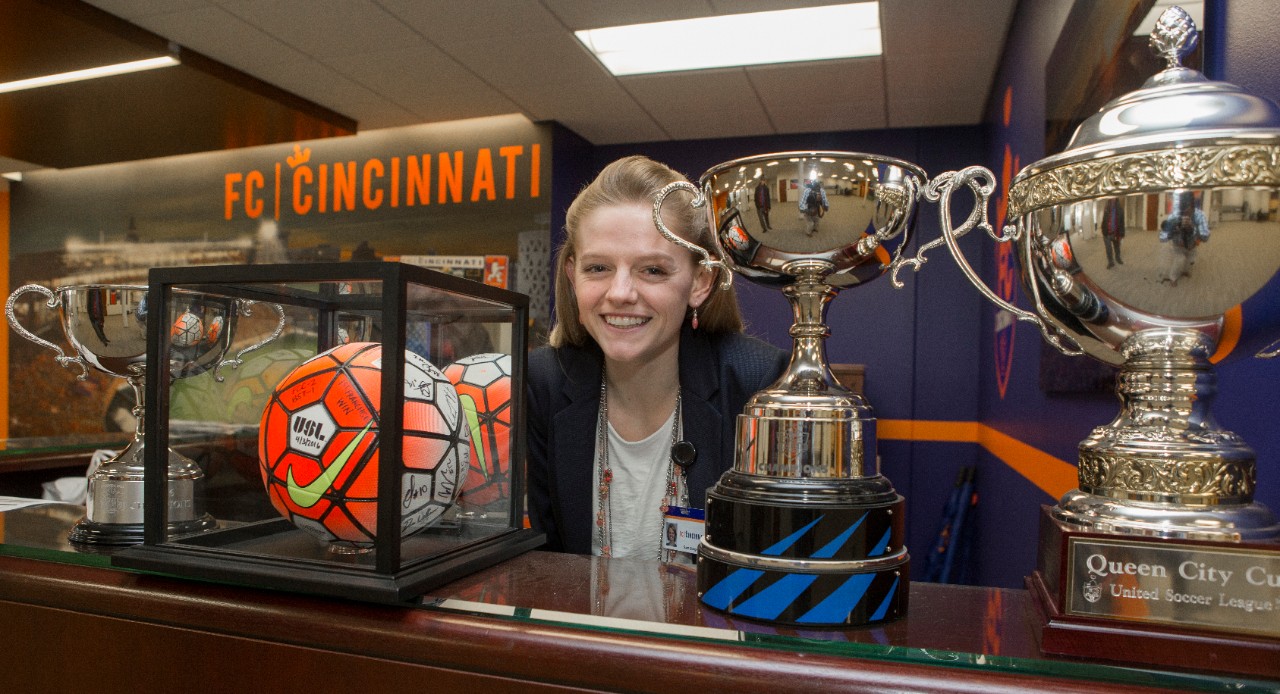
UC Arts & Sciences student Samantha Burgess is in a co-op at pro soccer team FC Cincinnati.
Samantha Burgess, a fourth-year communication student, is spending the spring semester in the sales office at FC Cincinnati, the Queen City’s professional soccer club that plays at UC’s Nippert Stadium.
“Working at the co-op extended my graduation date by a year, but I was happy to sacrifice that because of the experience I got,” Burgess said.
Burgess worked for the university helping with freshman orientation during her first co-op. She related to the FC Cincinnati co-op, in particular, because she plays club soccer at UC.
“Before the co-ops, I didn’t have much real-world experience. I nannied. I worked in a restaurant – stereotypical college jobs,” she said. “It gives you a foot in the door to start your career or build job experience.”
Arin Moyer, 26, a fifth-year fashion design major at UC’s College of Design, Architecture, Art, and Planning, has worked in four co-ops from New York to Florida. She sketched new skirts in the design studios for retailer Chico’s White House Black Market and completed co-ops in Chicago and New York.
Moyer said she especially liked designing for the smallest of her employers, Angelrox, a clothier in Biddeford, Maine, that specializes in environmentally friendly materials.
“I learned I really resonate with a smaller company. We worked as a team. I want to work at a place that’s mindful of these relationships,” she said.
Moyer said she is confident she will get job offers when the time comes. She stays in touch with all of her co-op managers. “Design is a smaller world than people might think,” she said. “I kept all those doors open.”
Some businesses rely on students to tackle projects that need immediate attention. That was the case for Collin Rack, 21, a third-year mechanical engineering student from Hilliard, Ohio.
For his co-op at aerospace manufacturer TECT Power in Thomasville, Georgia, Rack was put in charge of analyzing the precision of a laser-measurement device called a gap gun.
“The co-op was the biggest reason I chose UC over the other schools I was looking at,” Rack said. “It has helped me with time management and prioritizing. It made me a better student. Deadlines are reinforced in a professional setting.”
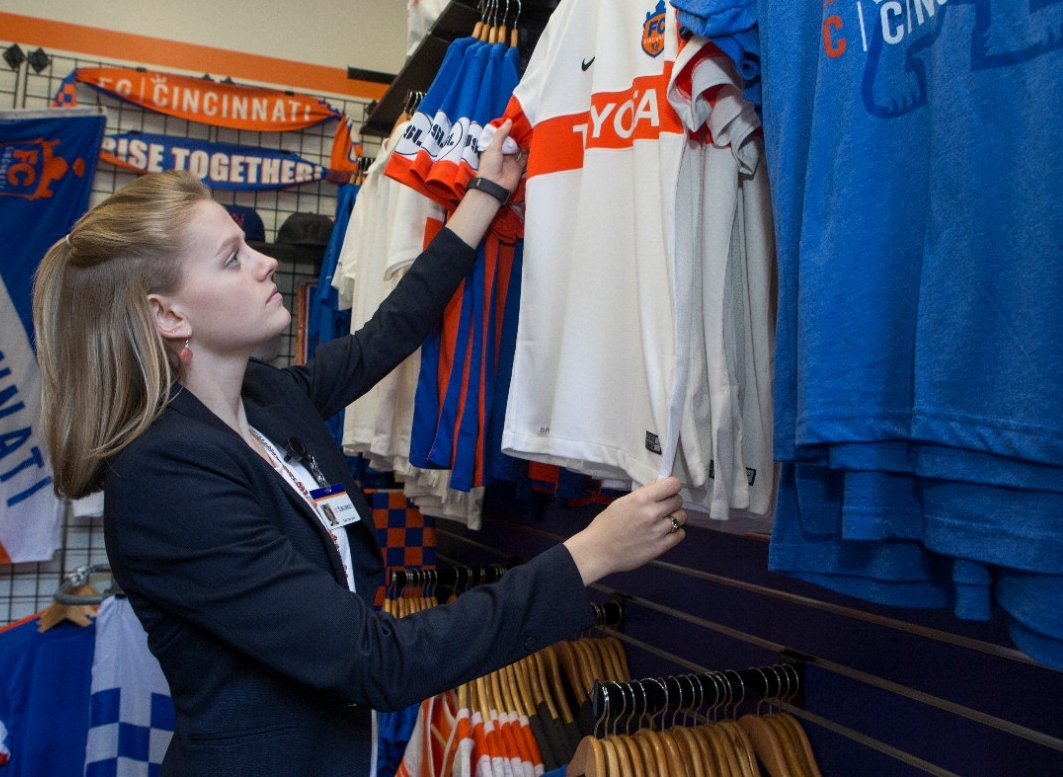
Fourth-year student Samantha Burgess said co-ops gave her valuable experience.
UC Co-Ops in 2016
- Collective co-op earnings: $65 million.
- Average student earnings: $10,300.
- Average wage: $16 per hour, depending on major.
- Co-op placements: 6,300.
- Co-op students: 4,291.
- Employer roster: 1,800.
- Placement rate for UC co-op students: 98 percent.
Source: UC Division of Experience-Based Learning and Career Education
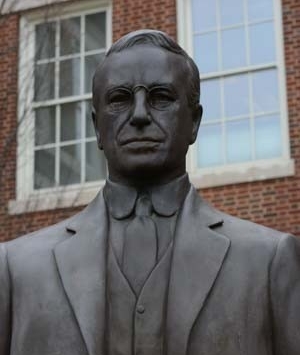
UC was the first university in the world to offer cooperative education. A bust of UC co-op founder Herman Schneider stands outside Baldwin Hall.
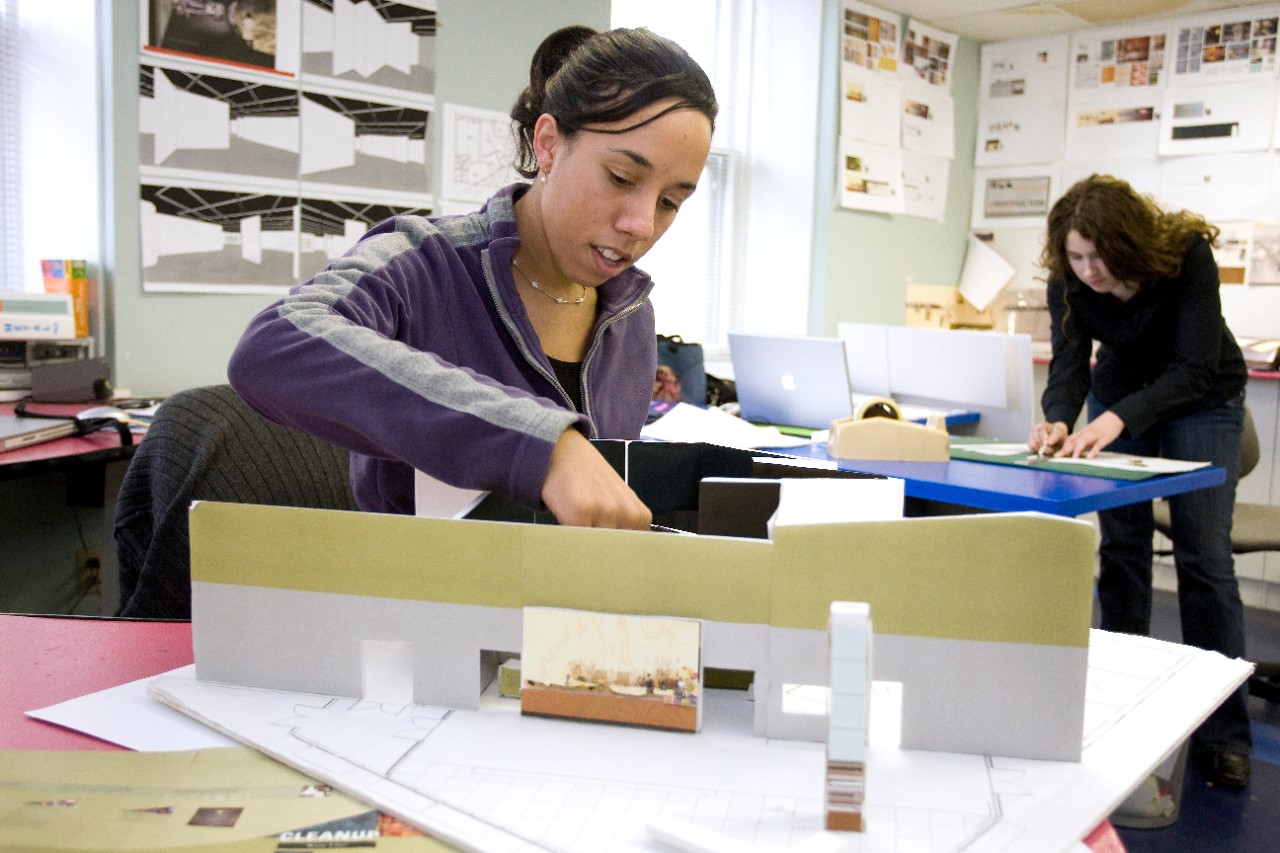
Businesses use the co-ops as a proving ground for future recruits.
Cincinnati-based Hixson Inc., an architectural engineering firm, hires a variety of co-op students for its 16 in-house technical disciplines. In many cases, the co-op positions lead to job offers, said Martha Montgomery, Hixson’s staffing facilitator.
“When I’m filling entry-level positions, UC students set themselves apart because they have that additional hands-on, practical experience under their belts,” she said.
UC has partnerships with many local firms, including General Electric, Procter & Gamble and Fifth Third Bank. But its reach is global with a growing roster of 1,800 companies that have participated, said Willie Clark, assistant professor and director of international programs in career education.
Clark sees particular promise in expanding UC’s international co-op opportunities.
Since 2013, his division has distributed nearly $800,000 in scholarships through the Freeman Foundation, a fund that supports UC undergraduate students in international co-ops and internships and gives students work experience in places such as Singapore and Hong Kong.
A new London co-op this summer drew a record number of applicants, Clark said. He is working to expand the international roster because students see these positions as resume builders.
“That global experience will distinguish you from your peers,” Clark said.
Become a Bearcat
Apply online or get more information about undergraduate enrollment by calling (513) 556-1100.

